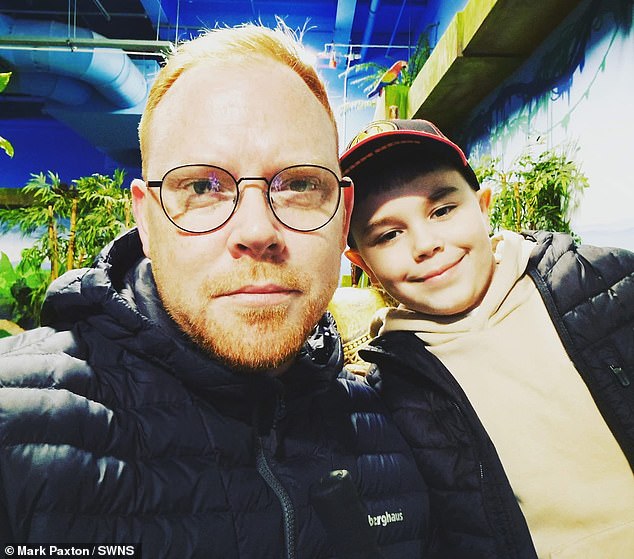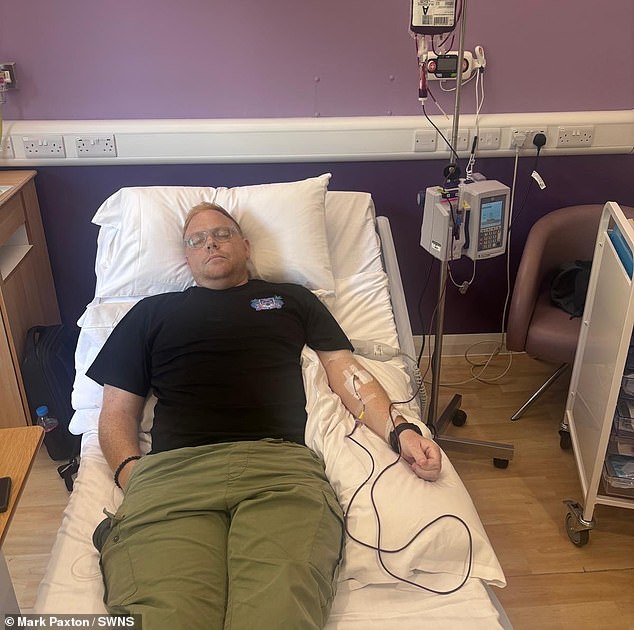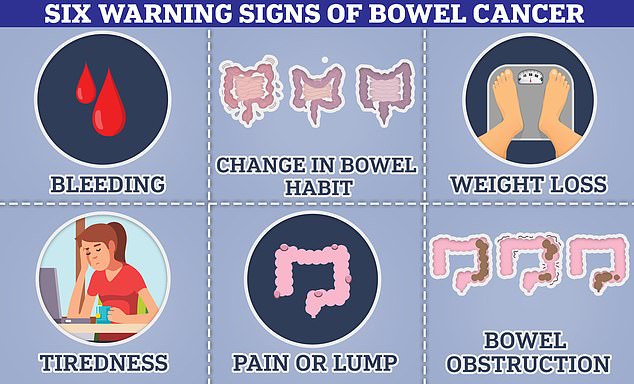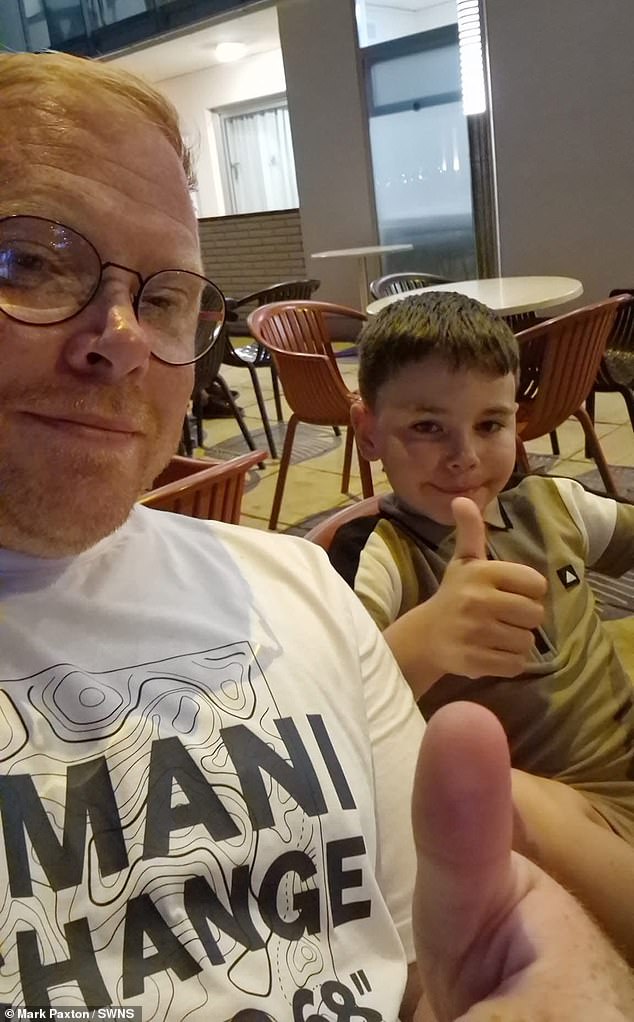A father-of-one who was diagnosed with a rare form of bowel cancer has urged others not to dismiss a little-known embarrassing sign of the disease.
Dave Paxton, from Burton-on-Trent in Staffordshire, began to notice his stools were darker in colour at the beginning of this year.
But it was only after a pharmacist asked him a routine question as he was ordering a repeat prescription in February that he flagged the issue.
Prompted by the chemist who said ‘do you have any other concerns’ after requesting anxiety medication, the 38-year-old said he revealed his stool concern, which he would never have visited the doctor to discuss.
When referred to the GP, days later tests showed he had duodenal cancer— a rare type of bowel cancer that forms in the small intestine, called the duodenum.
A CT scan revealed he was suffering a grade four squamous cell tumour, meaning it had spread to other parts of his body — specifically his liver and pancreas.
A squamous cell tumour of the duodenum, which develops in the lining of the small intestine, is so rare Mr Paxton reportedly accounts for one of just 22 cases confirmed worldwide to date.
Doctors, however, cannot give him a prognosis and he is currently undergoing gruelling chemotherapy and radiotherapy to prevent the tumour from growing.

Dave Paxton, from Burton-on-Trent in Staffordshire, began to notice his stools were darker in colour at the beginning of the year

But it was only after a pharmacist asked him a routine question as he was ordering a repeat prescription in February that he flagged the issue
Recalling his heartbreaking diagnosis, Mr Paxton said: ‘This is terrifying and the treatment side effects are horrendous, but I’m very grateful to the pharmacist for checking in with me.
‘I had noticed but wasn’t thinking much of it.
‘The diagnosis was such a shock. All I could think about was my son, I just burst into tears.
‘But I also knew I had to get on with it. The cancer is so rare they just can’t say how long I have, only that they are treating me to prolong my life.
‘One of the nurses was so helpful, he just said “you can beat this”, go home and put on music, do the things you enjoy, don’t lie down and give up.’
There are around 44,000 cases of bowel cancer every year in the UK and 142,000 in the US, making it the fourth most common cancer in both countries.
But cases are rising in young people, an alarming trend that experts have linked to modern diets, chemical exposure and lifestyles.
Symptoms often include changes in bowel movements such as consistent and new diarrhoea or constipation, needing or feeling the need to poo more or less frequently and blood in the stool.

Bowel cancer can cause you to have blood in your stool, a change in bowel habit, or a lump inside your bowel which can cause an obstruction. Some people also suffer from weight loss as a result of these symptoms

Given duodenal squamous-cell tumours are so rare, there have been no trials for the success of immunotherapy, so Dave can’t get this treatment on his health insurance or the NHS
Stomach pain, a lump in the stomach, bloating, unexpected weight-loss and fatigue are among other signs.
Anyone experiencing these symptoms should contact their GP for advice.
Since his diagnosis in March, Mr Paxton has undergone two months of chemotherapy and has just started radiotherapy.
He also requires blood transfusions every four days.
He is having his treatment funded through a workplace private health insurance policy.
But, given duodenal squamous-cell tumours are so rare, there have been no trials for the success of immunotherapy, so he can’t get this treatment on his health insurance or the NHS.
He is currently fundraising the £180,000 needed for 24 sessions. To date, he has raised £43,202 on GoFundMe.
Mr Paxton said: ‘It all feels very scary, and it’s a constant and exhausting battle every day.
‘They [the doctors] don’t know how I got it so young, they just said it’s “bad luck”.’
He added: ‘Unless you’ve been through something like this, you really don’t understand how precious life is.
‘I just want as much time as I can get with my family.’
Mr Paxton’s awful ordeal comes as experts continue to warn of a disturbing rise in bowel cancers in under 50s, which has baffled doctors around the globe.
The disease, the third most common cancer in the UK, killed Dame Deborah James at age 40 in 2022.
Although the vast majority of diagnoses affect those aged over 50, rates in older age-groups has either declined or held stable while diagnoses in younger adults have risen by 50 per cent over the last 30 years.
Cancer Research UK estimates that over half (54 per cent) of bowel cancer cases in the UK are preventable.












